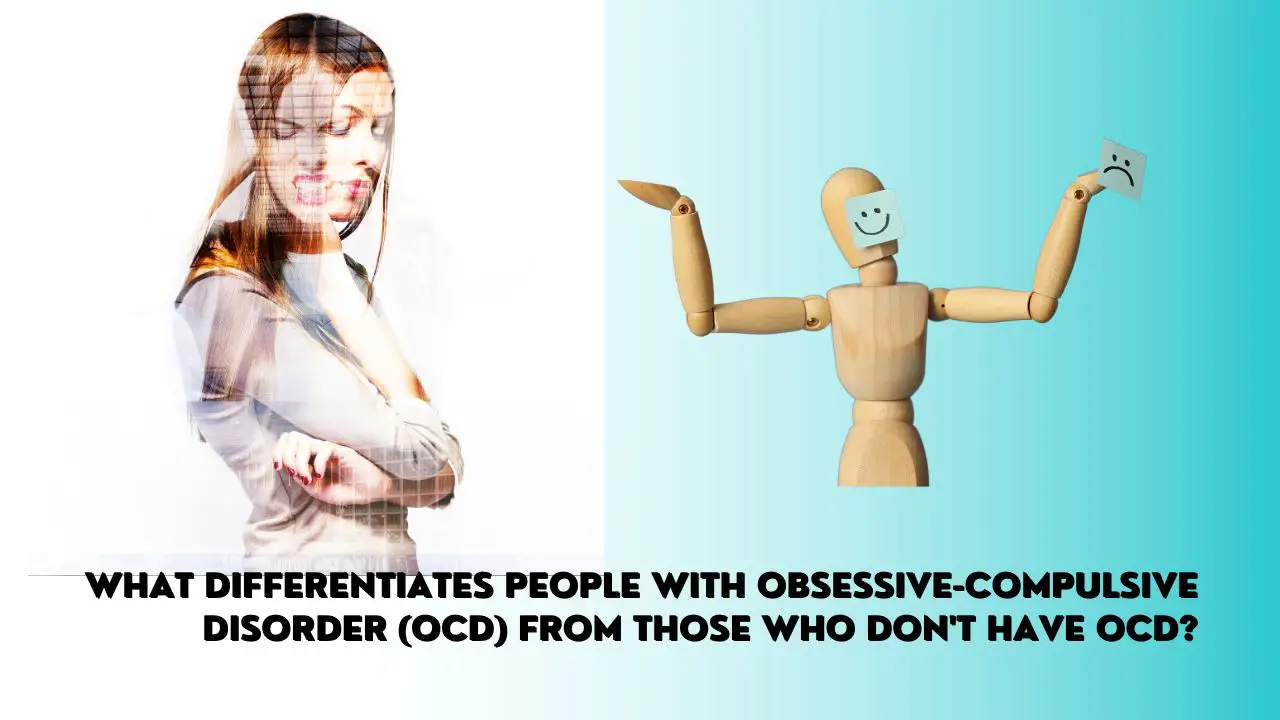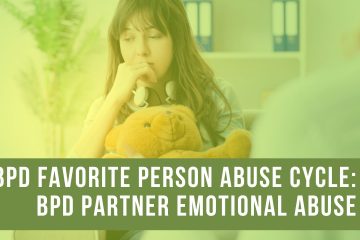OCD and OCPD have some similarities, but they are distinct conditions with significant differences. OCD is defined by intrusive thoughts that compel a person to engage in behaviors to alleviate distress and anxiety. This contrasts with OCPD, which is characterized by excessive attention to detail and perfectionism. The main distinction is that OCD includes obsessions/compulsions, whereas OCPD does not.
What Is Obsessive-Compulsive Personality Disorder?
The symptoms of obsessive-compulsive personality disorder (OCPD) include strict orderliness, control, and perfectionism. Someone suffering from OCPD will most likely try to maintain control over the smallest details of their life, even if it means sacrificing flexibility and openness to new experiences.1
OCPD is a personality disorder, which means it involves stable, long-held, atypical, and problematic personality traits. People with OCPD may find it difficult to relate to others, and their obsession with perfectionism and rigid control can make it difficult to function.
This category also includes narcissistic personality disorder, histrionic personality disorder, and borderline personality disorder.
However, OCPD is not synonymous with narcissism. People with OCPD are obsessed with doing things perfectly, whereas people with narcissistic personality disorder have an exaggerated sense of grandeur and believe they should be lavished with praise and attention at all times.
Obsessive-compulsive disorder (OCD) is not the same as OCPD. It’s also not a form of OCD. In the Diagnostic and Statistical Manual of Mental Disorders, 5th Edition (DSM-5-TR), OCD is classified as a separate mental condition called “Obsessive-Compulsive and Related Disorders.”2
This article discusses the symptoms of OCPD and how to tell the difference between OCPD and OCD. It also discusses how to diagnose OCPD, what causes it, and how to treat it.
Symptoms of OCPD:
The primary symptoms of OCPD are a fixation on perfection and a need for control. OCPD patients may experience the following symptoms:3
They are acting restrained or restricted in their emotions.
Inflexible and rigid adherence to rules
Creating task lists and order
desire to exert control over their interpersonal relationships
Having trouble empathizing with others and/or maintaining intimate relationships
Extreme devotion to their work Difficulty giving things to others Need for perfection in the smallest details
Problems with self-identity and/or self-direction Difficulties relinquishing control and delegating tasks
OCPD may appear to be similar to an anal personality type at first glance. While someone with an anal personality may exhibit some of these characteristics, such as perfectionism, orderliness, and a desire to be in control of their surroundings, having these quirks is not the same as having a personality disorder.
OCPD Diagnosis:
There is no specific test that can determine whether or not someone has OCPD. A clinician will ask you questions about your symptoms and how they affect your life in order to make a diagnosis. They may also perform laboratory tests and a physical exam to rule out other conditions.
A person must exhibit a persistent pattern of preoccupation with perfectionism, order, and control of the self, situations, and others in order to be diagnosed with OCPD. It must also be accompanied by at least four of the following DSM-5-TR symptoms:3
Excessive work dedication at the expense of family or friends
Excessive need for perfection and unwavering control over your surroundings and interpersonal relationships
Inability to be charitable to others
Inability to assign tasks
Inability to discard worn-out or worthless items (including those with sentimental value)
Over-conscientiousness
Preoccupation with details, rules, lists, and order that can lead to missing the main goal of an activity
Rigidity and inflexibility in terms of morals, ethics, values, and/or rule-following
They may also look for additional OCPD symptoms. These include rigid perfectionism and at least two other personality traits:
Avoidance of intimacy
Getting “stuck” mentally on an idea
Emotional expression has been reduced.
Your doctor may also examine you for any problems with empathy and intimacy. People with OCPD frequently have difficulty maintaining interpersonal relationships, including romantic relationships. They may struggle to empathize with others and are often described as cold or aloof. They also have difficulty with intimacy and find it difficult to express affection or emotions.
To be diagnosed with OCPD, a person’s ability to function in important life areas such as school, work, family, and other relationships must be significantly disrupted.
OCPD is also similar to other conditions like OCD, eating disorders, autism spectrum disorder, and other personality disorders. They may also co-occur with OCPD. Before diagnosing OCPD, a doctor will need to rule out these other conditions.4
It may take some time for a doctor or therapist to diagnose OCPD. They may require several meetings with you to discuss and observe your symptoms.
Before making a diagnosis, a doctor or therapist may need to speak with loved ones to get a better picture of your daily behaviors and interactions.
Recap
To be diagnosed with OCPD, you must have at least four of the symptoms listed in the DSM-5-TR. These symptoms must have begun in early adulthood and must be interfering with the individual’s ability to function in daily life.
OCPD versus OCD: what differentiates people with obsessive-compulsive disorder (ocd) from those who don’t have ocd?
While OCD and OCPD are distinct forms of mental illness with distinct and distinct characteristics, there is significant overlap between them. There are, however, some basic ways to tell them apart.
Obsessive-compulsive disorder (OCD) and related disorders
Distress caused by thoughts and actions
Behaviors change.
Obsessions and/or compulsions that are true
Personality disorder OCPD
Belief in the purpose of one’s thoughts/behaviors
Persistent behaviors
Obsessions/compulsions-free behaviors
True Obsessions and/or Compulsions are present:
True obsessions (an irrational thought or idea that repeatedly repeats) and/or compulsions (an irrational behavior performed repeatedly) characterize OCD. These behaviors can occur concurrently or independently, and they impair a person’s quality of life and ability to function.5
In the case of OCPD, however, the personality traits are not directed by uncontrollable thoughts or irrational, repetitive behaviors.6 While people with OCPD frequently engage in rigid behaviors that may be centered on following specific procedures, they do not experience the same intrusive thoughts and overwhelming compulsions as people with OCD.
Obsessive Behaviors or Thoughts Feelings:
Even if they are unable to control their behaviors or thoughts, people with OCD frequently feel distressed by them. People with OCPD, on the other hand, frequently believe that their actions have a goal and purpose.
As a result, those suffering from OCPD may avoid seeking professional help.3 In some cases, OCPD traits can even lead to success—for example, someone who is overly dedicated to their job and conscientious of every detail may benefit at work even if they are struggling in other areas of their life.
Symptoms that are consistent:
OCD symptoms tend to fluctuate in relation to the underlying level of anxiety. People suffering from OCD engage in behaviors to cope with feelings of fear, anxiety, and uncertainty. This means that their symptoms may be less severe when they are feeling less anxious.
Because OCPD is a personality disorder characterized by rigidity, the behaviors tend to be consistent and unchanging over time. These symptoms do not vary with anxiety levels and can be found in almost every aspect of a person’s life.2
It is also possible for the two conditions to occur concurrently. According to research, 20% to 30% of people with OCPD may also have OCD.
The Causes of OCPD:
We still don’t know what causes OCPD, but there are some theories that explain various possibilities. According to one attachment style theory, OCPD can develop in children who:3
Had overprotective parents or caregivers who did not provide adequate care
They did not grow emotionally or empathetically as children.
They were unable to form strong bonds with their parents or caregivers.
There may also be a biological component to OCPD, as having relatives with the condition may increase your chances of developing it.3
OCPD Risk Factors:
One of the most common personality disorders is OCPD. It appears to affect men and women at roughly the same rate, though it is less common in younger adults. It can occur in conjunction with a number of other conditions, including:8
Depression
Eating problems
Illness anxiety disorder (previously known as hypochondriasis)
Parkinson’s disease is a neurological disorder.
According to one study, 7.8% of adults will develop OCPD at some point in their lives.9
The Treatment of OCPD:
Though more research is needed in this area, most personality disorder treatment plans begin with psychotherapy, with medication used as a supplement.10
Psychotherapy Treatment options for OCPD include:
Cognitive behavior therapy (CBT) focuses on assisting you in recognizing and eventually changing the negative thought patterns associated with OCPD.
Psychodynamic therapy is designed to help you understand your conscious and unconscious thoughts and emotions so that you can make better decisions in your daily life.
Medication:
If you have OCPD and another condition, such as depression, your doctor may recommend medication to help control some of your symptoms. This could include anxiety medications and/or antidepressants.
Managing OCPD:
A person suffering from OCPD may find it difficult to relate to others. Excessive perfectionism and an inability to delegate tasks can be stressful. Being rigid, having high expectations, and having difficulty empathizing with others can all have an impact on interpersonal relationships. As a result, people with the condition may feel isolated and misunderstood.
You can learn some coping strategies for OCPD in addition to seeking treatment. These may include:
Self-education: Learning more about your condition can be a liberating experience. It may assist you in recognizing when an OCPD symptom is causing your behavior so you can take appropriate action.
Managing your stress: It is always a good idea to keep your overall stress levels low. Make a plan to reduce stress so you’ll be prepared to deal with whatever comes your way.
Self-care: If you have OCPD, it is easy to neglect yourself while focusing on your current project. Consider incorporating self-care into your daily routine.
Experimenting with mindfulness and meditation: Mindfulness can assist you in recognizing when perfectionism is causing anxiety.
A Few Words from Us:
If you have symptoms of OCPD and want to get help, you should see a qualified mental health professional. You may not immediately recognize the negative impact of your behavior and how it affects various aspects of your life. A mental health professional can determine whether you have OCPD and help you deal with its symptoms.
If you or a loved one is suffering from OCD, OCPD, or another mental health condition, call the Substance Abuse and Mental Health Services Administration (SAMHSA) National Helpline at 1-800-662-4357 for information on local support and treatment options. See our National Helpline Database for more mental health resources.



